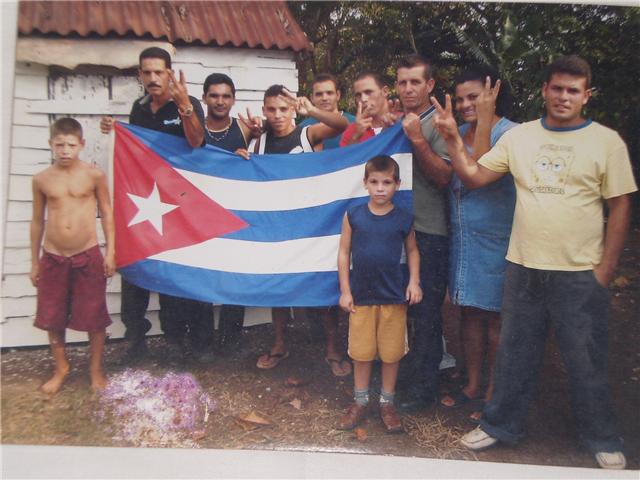
Every revolt, mutiny, or uprising in countries with despotic governments who worship the sweet taste of power, as happened in Iran in 2009 or right now in Tunisia and Egypt, awakens the wish in Cubans on and off the island that the social tension and economic precariousness of the ‘verde caimán‘ might push the people to throw themselves into the streets to try to turn the order of things around.
It’s not that easy. Genetically, Cubans are no different from other races or peoples. At their deepest, they also wish to live in societies with democratic rules and sharing of powers.
If you ask a citizen from the heart of Cuba, he will tell you that he’d like to elect a president every five years and also be able to criticize his leaders without threat of imprisonment. If you put it to them, on balance a majority of Cubans desire changes and a different future. They want the Internet to stop being science fiction, to read magazines and books and follow political and religious tendencies of their choosing. Or follow none at all.
But the Cuban people don’t have a vocation for suicide, nor the making of martyrs. Until today, desperation and the perennial economic and securities crises haven’t pushed them to a street rebellion.
“Wishes don’t make children,” goes a saying. Things happen when they have to happen. It’s understandable that Cubans committed to the future of their country wish to give a push to accelerate certain democratic reforms.
I understand them. I have family living in exile. And in the diaspora, many wish to be able to return to their Fatherland someday. Fifty-two years of personal authoritarian government of the Castros and the pages of the calendar that inevitably turn makes them think that their bones will lie in faraway lands.
Successes and people’s demonstrations in countries with ancient and totalitarian governments — like that of Cuba — awakens in the exiles the hope that the seditious spark will extend itself to the island.
Life has shown that it’s impossible to design and dictate from abroad, or through local dissident groups, a call to peaceful uprising of those who don’t have a profound political conscience, whose life goes on between continuous fear and a simple, human goal: to bring two hot meals to the table every day.
In Cuba there has been no repercussion of the call made by bloggers living abroad, calling their compatriots to carry out street protests. One of the reasons is simple: on the island, less than 5% of the population is connected to the Internet.
Opposition groups — on and off the island — consider it advantageous to use whatever peaceful means to upset the status quo, knowing that there has been an increase in discomfort and wish for profound transformation in a socialist system, closed and single-party.
But what it’s about is not about the coincidence of opinions, that the situation in Cuba should have to change. The disagreements are about which methods to use. And about other factors that range from fear to indifference. And even the lack of balls.
Translated by: JT
February 8 2011
